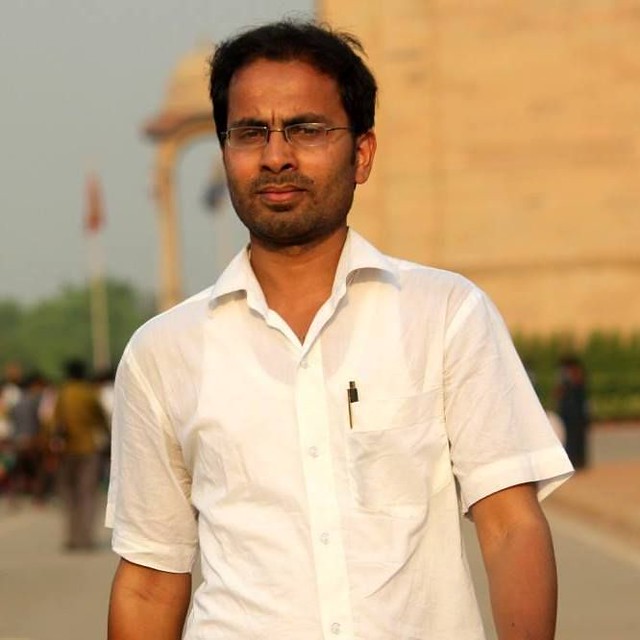By TwoCircles.net Staff Reporter,
New Delhi: RTI maverick and journalist Afroz Alam Sahil has been working on a research project on the use of RTI by prisoners for last three months under a fellowship given by the Department of Personnel and Training (DoPT), Government of India.
The exact title of the research is “Use of RTI by Prisoners: A Case Study covering Tihar and Aurthor Road Jail”. The proposed research is an attempt to study and under the use of RTI Act by the prisoners and detainees in jails and its impact on the internal transparency, prisoners’ rights and overall prison reforms, Sahil told TwoCircles.net.

Afroz Alam Sahil
Explaining the objective of the research, Sahil elaborates, “Prisoners are often seen as contained in the enclosed spaces and unable to articulate their own voice. This study tries not only to look into the number of RTI applications filed by prisoners of Tihar and Arthur Road Jail but look into the nature of questions being asked by them, and based on these make an assessment of the manner in which they have put RTI to use – to serve both personal and public interest.”
The study will underscore the problems, if any, faced by prisoners in the process of filling RTI applications and accessing responses from public authorities, he says.
In the proposed Synopsis of the research project, Sahil wrote: “Jail inmates – many of whom are still under trials – lose their basic freedom to movement and are often subjected to most inhumane conditions in jails while awaiting the completion of their trial. RTI applications have become a potent tool of empowerment not only for common citizens but also for these prisoners. However, there is little available information in public domain on how prisoners use RTIs for empowerment and how it could help in much needed jail reforms in the country.”
He says that his research project will further broaden the objective of the RTI Act as spelt out in Section 26(2) that requires all appropriate governments to conduct awareness raising programmes for disadvantaged segments of society. “Undertrials without a doubt may be included in this category due to their incarceration in jails,” the research proposal explains.
Sahil has just completed his research project and has submitted the final copy to the DoPT. He, however, did not share the findings of his research as under guidelines of the fellowship, it will be made public by the concerned department. He said that he plans to develop his research into a book soon.
Sahil is a famous RTI activist and has filed over five thousand RTI applications since 2005 in several departments of the government. It was based on his RTI that the post-mortem reports of those killed in the Batla House shoot-out were made public – first reported on TwoCircles.net. His RI applications have helped identify several Waqf properties that were illegally encroached upon. He also highlighted the funding of political parties.
Sahil runs an alternative news portal BeyondHeadlines.in and also contributes to BBC and other publications. He recently published a book on Pir Mohammad Munis, journalist, Hindi writer and freedom fighter from Bihar’s Champaran district. Sahil himself is originally from Bihar’s Bettiah district but is now based in New Delhi.
The Department of Personnel and Training (DOPT), Ministry of Personnel, Public Grievances and Pensions, Government of India, is the nodal Ministry for the Right to Information Act. It also administers a Plan scheme titled ‘Improving Transparency and Accountability in Government through effective Implementation of the Right to Information Act’.
The primary goal of the scheme is to contribute towards more accountable and transparent government and it has several components including programmes for awareness generation, training and e-governance initiatives for RTI for achieving the purpose.
Under this scheme, DoPT offers 3 short-term fellowships to researchers from the field of media / Civil Society professionals / RTI Trainers to conduct field based research on themes relating to RTI. It is hoped that the research output will enhance our understanding of the status of the implementation of the act, including its successes, constraints in its implementation and how those are being / could be overcome and what more needs to be done to help achieve the objectives of the Act.
Related:
New book on Pir Mohammad Munis launched at his hometown in Bihar

